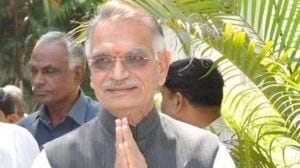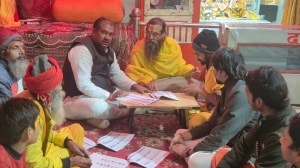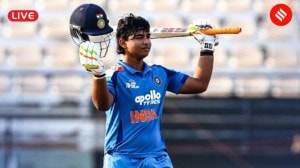Senior Samajwadi Party (SP) leader Shivpal Yadav, party chief Akhilesh Yadav’s uncle, kicked off his campaign in Badaun, where his son Aditya is contesting the Lok Sabha polls, with a line from a ghazal by the poet and lyricist Shakeel Badayuni. “Kaise keh du ki mulaqat nahin hoti hai, roz milte hain magar baat nahin hoti hai (How can I say we don’t meet, we meet everyday but don’t talk),” stated Shivpal in a X post on March 14.
Shivpal’s bid to quote from Badayuni is not an isolated case in the Badaun Parliamentary constituency, which goes to polls in the third phase on May 7. For the verses penned by the famous poet from Badaun – who passed away in 1970 at the age of 53 – have continued to be on the lips of many, including political leaders cutting across party lines, here.

The lines from his poetry have continued to be recited in public meetings and rallies in the region amid thunderous applause. However, Badayuni’s “nishani (mark)” in Badaun in the form of his ancestral house is in dire straits.
In the narrow lanes of Badaun’s Baindo Tola, around 2 km from the district headquarters, stands a century-old building in dilapidated condition – partially painted, white and blue colours fading, its wooden ceilings splintered. On a small board above the doorway, handwritten in maroon paint are the words, “Shakeel Manzil, Shakeel Badayuni”.
 A photo of Shakeel Badayuni at his house. (Express photo by Dheeraj Mishra)
A photo of Shakeel Badayuni at his house. (Express photo by Dheeraj Mishra)
It is here that Badayuni was born in 1916. After his school years, he left for the Aligarh Muslim University (AMU), where he completed his BA and then shifted to Delhi for a job. Four years later, after his father’s death in 1946, he moved to Bombay, where he met the legendary music director Naushad Ali and together created many popular songs in a slew of films ranging from Baiju Bawra to Mughal-e-Azam to Mere Mehboob.
His Badaun home is now occupied by two families – one distantly related to Badayuni and the other that serves as a virtual caretaker – who accuse each other of “encroachment”.
“This building can collapse any time. Whatever money we have we spend to fix it every now and then,” said 62-year-old Safina while showing the room where Badayuni was born and her family now lives. Badayuni was her husband’s cousin.
Story continues below this ad
“He (Badayuni) died around 10 years before my marriage. When I came to this house, I got to know about him. Ab door door tak hamaare parivaar me koi shayar nahi hai (Now there is not a poet even among our distant relatives),” said Safina, adding that her son is a scooter mechanic while her husband and his three brothers have died.
In the room next door lives Safina’s 65-year-old sister-in-law Firoz Begum, where a portrait of Badayuni on the wall is the only framed photograph in the house. Asked if any of the late poet’s books remain, she says, “Ab sher-shayari kaun karega? Woh Urdu me thi, ghar ke bacche Urdu nahi jaante hain (Who will read poetry now? The books were in Urdu, which the children do not know how to read). Earlier, there were boxes full of his letters and some books, but they got infested with termites.”
 The door leading to Shakeel Badayuni’s house. (Express photo by Dheeraj Mishra)
The door leading to Shakeel Badayuni’s house. (Express photo by Dheeraj Mishra)
Firoz Begum has three sons – one works in a soap factory and other two are painters. Her youngest son, 24-year-old Rehman, who studied up to Class 7, is the most educated in the family. “I had to start working at a very early age. I do not have much knowledge about (Badayuni), but I know he is very famous. People keep coming here from around the world to see this house, which is now in ruins. We have no option but to live under these circumstances,” Rehman said.
Safina says the government should convert the building into a memorial to Badayuni with a dedicated library. “If the government wants to renovate, they can do so. They should open a library here, we will shift to upstairs. But his nishani should be developed properly. We need support from the government,” she said.
Story continues below this ad
Mushahid Majid, the 66-year-old caretaker of the house, still has some of Badayuni’s books and letters. He said Badayuni last visited the city in 1961 to attend a mushaira, a poetry symposium.
Hazi Raisuddin, a 72-year-old local resident, who remembers Badayuni’s last visit, expresses sadness over his neglected legacy. “Aaj woh nahi hain, sirf unki yaadein hain (Badayuni is no more, only his memories remain). He is beyond all of us… But given his stature, this city has not treated him that way,” he said.
“The house should have been converted into a museum. To leave his house in such a state is showing disrespect to a great man. Someday a gust of wind will blow, and it will fall,” Raisuddin said.
On the Lok Sabha polls, as e-rickshaws playing songs of various parties pass through their street, the household members said the Hindu and the Muslim communities should be brought closer. “We have been trying for an Ayushman (health insurance) card for a long time. We need good education facilities. There are many other schemes we are not getting. However, I would say that Hindus and Muslims should live together. This will be real tribute to Badayuni,” Firoz Begum said.
Story continues below this ad
 Shakeel Badayuni’s house in Badaun. (Express photo by Dheeraj Mishra)
Shakeel Badayuni’s house in Badaun. (Express photo by Dheeraj Mishra)
On the candidates in the Badaun fray, Ruman Badayun, a 30-year-old relative of Badayuni, said, “The BJP’s Mahesh Chandra is a very good MLA. He is accessible and helps everyone irrespective of caste and religion. Muslims of my age will not vote on the basis of religion, but the qualities of the candidate. The only concern is there should not be politics of hate. It should not happen that halaq se baat nikali nahi ki aapne hathkadi pehna di (that one is handcuffed even before saying something).”
Badayuni had written songs for about 90 films over a 26-year period. An icon of the city, a large portrait of the Urdu poet hangs in the hall of the Badaun Club and, to celebrate his contributions, the district administration had installed a bust of Badayuni at the Ghanta Ghar in the city’s market. But the statue is now obscured behind a hoarding.
Asked if she would encourage her grandchildren to become poets, Safina said, “Unhe dekh kar bahut naaz hota hai, lekin abhi kuch keh nahi sakte (I feel pride when I look at them but I can’t say anything now). My grandson says he wants to become a cricketer.”

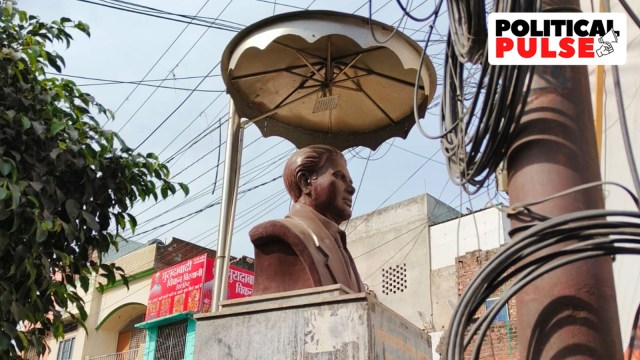

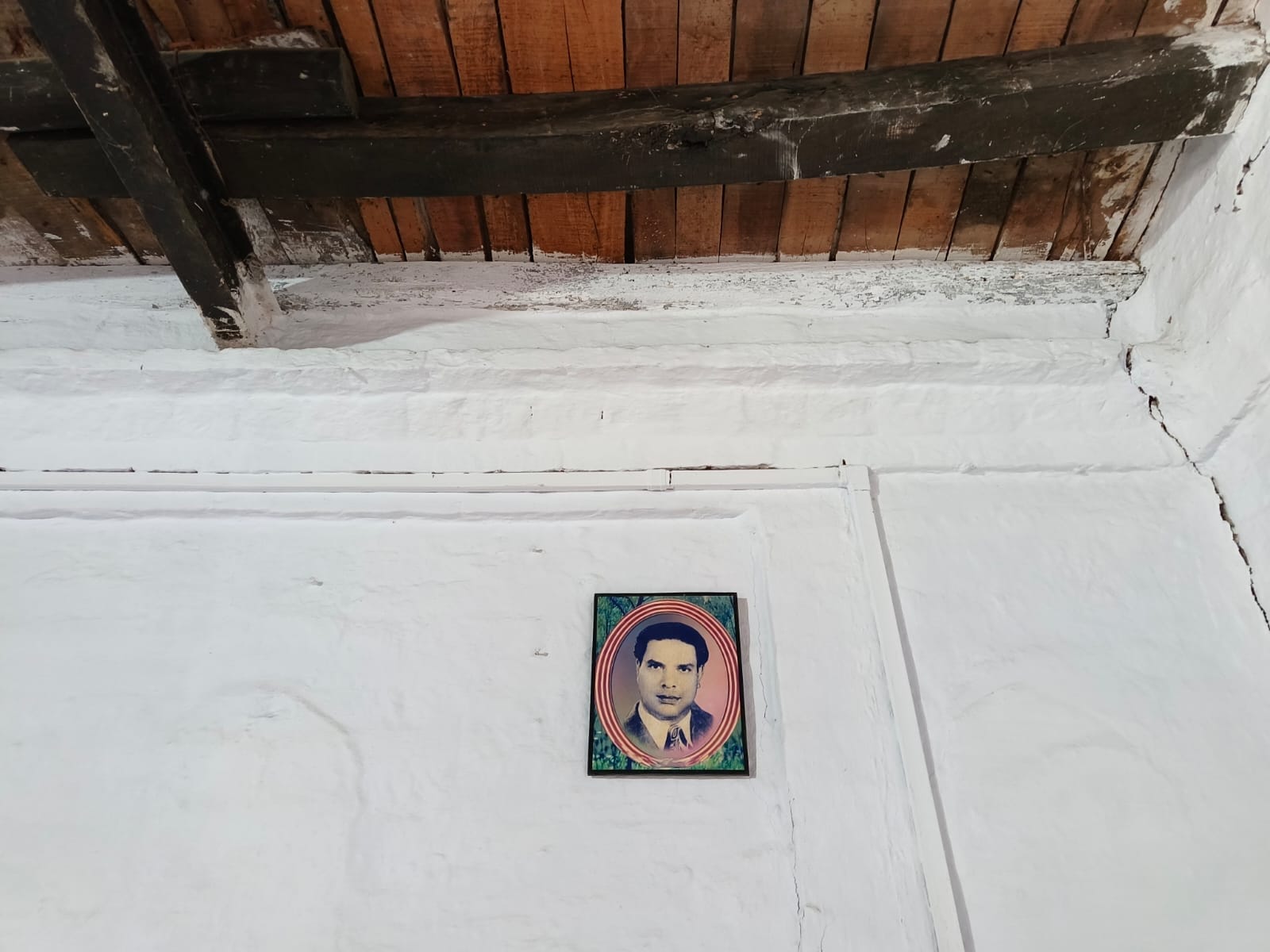 A photo of Shakeel Badayuni at his house. (Express photo by Dheeraj Mishra)
A photo of Shakeel Badayuni at his house. (Express photo by Dheeraj Mishra)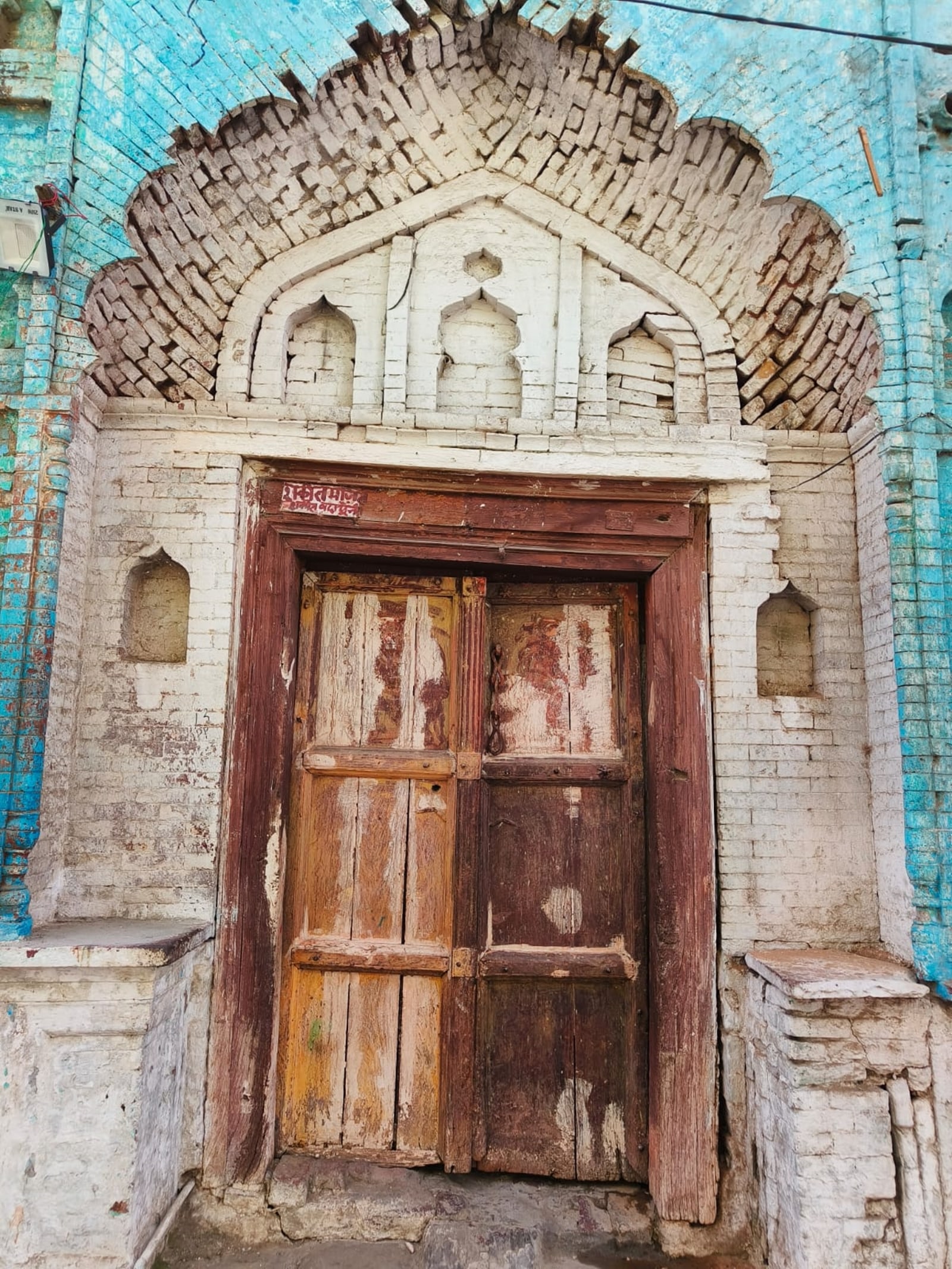 The door leading to Shakeel Badayuni’s house. (Express photo by Dheeraj Mishra)
The door leading to Shakeel Badayuni’s house. (Express photo by Dheeraj Mishra) Shakeel Badayuni’s house in Badaun. (Express photo by Dheeraj Mishra)
Shakeel Badayuni’s house in Badaun. (Express photo by Dheeraj Mishra)






